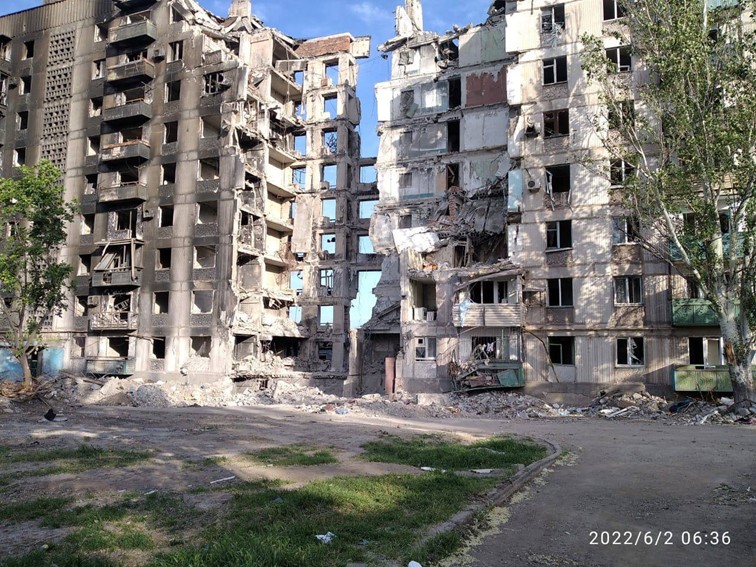Russia’s fake ‘Donetsk republic’ moves to appropriate Ukrainians’ homes on occupied territory

Russia’s proxy ‘Donetsk people’s republic’ [‘DPR]] has adopted a ‘law’ on expropriating apartments whose owners fled Russia’s full-scale invasion or who refuse to ‘re-register’ their Ukrainian property under Russian legislation.
The document was ‘passed’ by the fake ‘DPR parliament’ and came into force on 21 March. It claims to be about identifying and “municipalizing’ residential buildings which “bear the signs of being ownerless property”, although is, in fact, a way of depriving Ukrainians of their homes. The document envisages that properties can be appropriated following denunciations from individuals or legal entities. The excuses for doing this are that the owners have been in arrears for a year on communal services at the moment when the property is identified as potentially ‘ownerless’. Another pretext, even more sinister, is that the owners have refused to ‘re-register’ such property in Russia’s ‘state register of property’. Any application or imposition of Russia’s legislation on illegally occupied Ukrainian territory is in grave violation of international law, and so, therefore, is confiscation of such property.
A third excuse is that the failure to use the residential property is a risk to security or ‘national security’. Worth noting that Russia destroyed or seriously damaged huge numbers of buildings through its relentless bombing and shelling of Ukrainian territory. The claim, therefore, that disuse of property that Russia made uninhabitable justifies the property’s confiscation seems especially cynical.
After the occupiers have identified property that they claim to be ‘ownerless’, they warn of this on the website of the occupation ‘municipal authority’ and near the entrance to the property. The notification gives the owners 30 days in which to turn up in person, “with a passport of a Russian citizen or other document which identifies them”, and documents confirming their ownership rights. If the owner is able to do this, then the measures underway to appropriate the apartment are terminated, however the occupation ‘authorities’ still try to ‘persuade’ the owner to renounce it.
If the owner does not appear or cannot provide the documents, the property is declared to be ‘ownerless’. Three months later, the occupation ‘authorities’ turn to an occupation ‘court’ and the property is ‘formally’ handed over to the occupation municipal authoriy.
It is clear that this is a carte blanche for stealing Ukrainians’ territory. Even if Ukrainians who left after the full-scale invasion can get back to the occupied territory in time, they may well place themselves in danger by doing so. This is particularly the case if they have very publicly expressed opposition to Russian occupation or simply pro-Ukrainian views. There have, however, been many occasions where Ukrainians have been seized and imprisoned for months or years on fabricated charges after returning to occupied territory.
If the lack of Russian ‘registration’ is used as a pretext for depriving people of their property, this could be used even against those still living on occupied territory. In the cities, like Mariupol, that Russia gained control of after bombing and shelling them, it is quite likely that owners’ papers confirming their ownership rights were destroyed.
It was reported in October 2023 that the Russian occupation regime in Mariupol had begun what they called an ‘inventory’ of residential buildings. The fear expressed then that this was in preparation for seizing the homes of those who managed to leave the city would appear to have been well-founded (details here).





